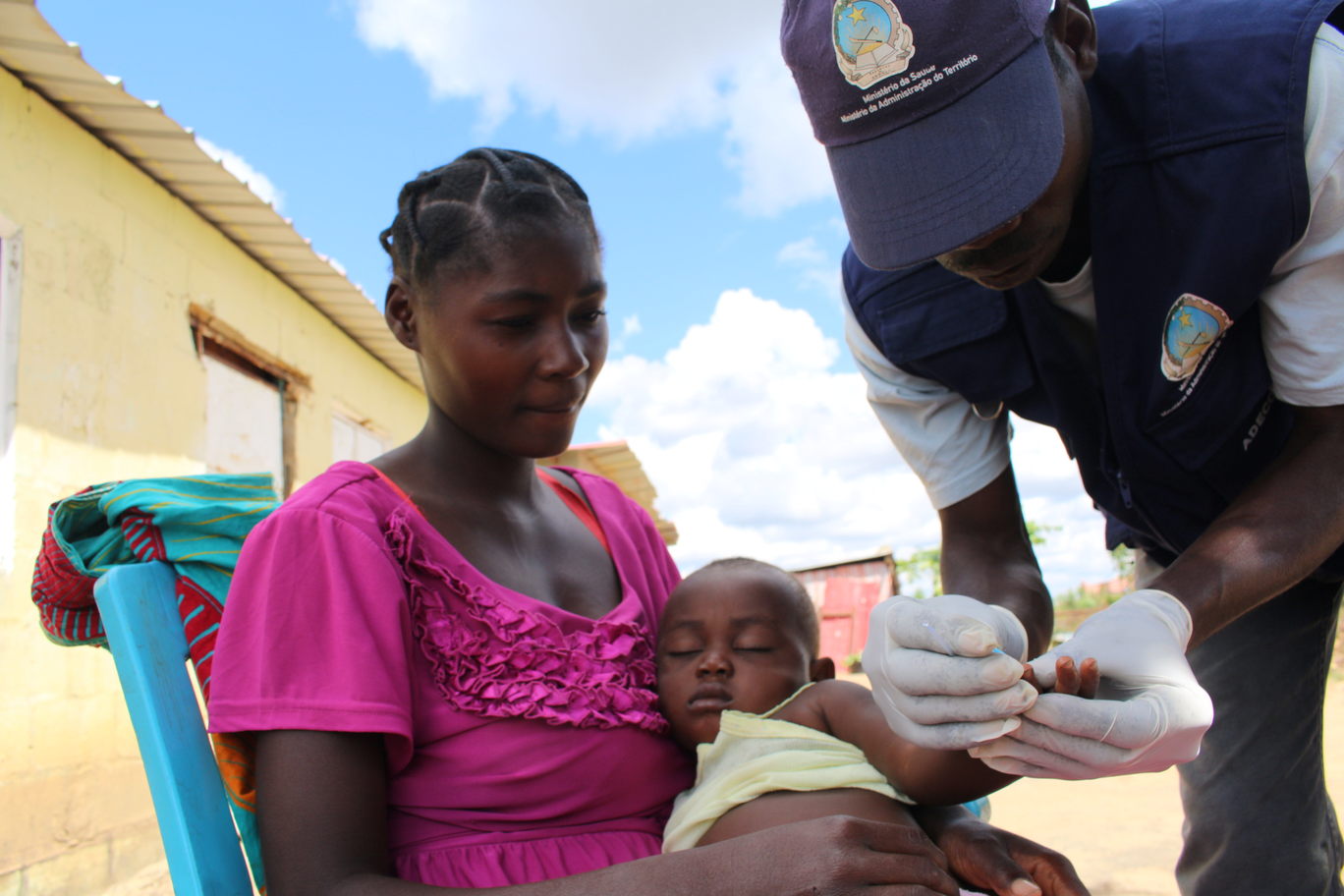Health and Nutrition
Although Angola is the second largest oil producing country in Africa, many children continue to suffer from problems associated with malnutrition, lack of water, health, or protection.
What we want to do:
We want all children in Angola to enjoy good health. We working towards this by:
- Increasing the number of children who are protected from disease
- Increasing the number of children who are well nourished
- Ensuring children and their caregivers have access to essential health services
- Reducing the prevalence and impact of HIV and AIDS on boys and girls
What is the problem?
Angola continues to experience some of the highest maternal and child mortality rates from preventable diseases such as: Malaria, diarrhea, Pneumonia and malnutrition in Africa.
- Only 20% of children under the age 5 and pregnant women are sleeping under insecticide-treated bed nets. This means 80% of children are at an elevated risk of contracting Malaria. High levels of Malaria coupled with long distances (an average of 20 km) to the nearest health post, means the majority of Malaria cases are not diagnosed or treated properly
- only 31% of babies are exclusively breastfed
- 38% of children under 5 are stunted
- 19% of children are underweight and 5% are wasting
How is World Vision addressing these issues?
To reduce the distance caregivers need to travel and increase the availability of treatment, we are training Community Health Agents (CHAs) and community development agents (ADECO), who provide a number of services at the community level such as: increasing the opportunity for children to receive diagnose and first treatment of Malaria in the community and decreasing the time and distance caregivers need to take children to health centers.
WVI is active in the fight against malaria, diarrhea, pneumonia and other preventable infectious diseases. In Angola, WVI works in partnership with the Government in the fight against malaria, through the training of Community and Health Development Agents (ADECOS). These agents are community leaders, who have been trained to do malaria case management, detect and treat simple malaria cases and refer them to the nearest health facilities in more severe cases.
The food and nutritional insecurity affecting the majority of rural families in Angola is a multidimensional problem. It is due not only to the low availability of food, but also to the lack of means to access the food available on the market, as well as to the lack of knowledge about nutritional issues. For this reason, WVI in Angola works in each of these themes in an integrated way. With regard to the availability of food to families; we promote the increase and diversification of family production, and the improvement of post-harvest conservation systems. World Vision staff also conduct community education on appropriate feeding practices, hygiene, and sanitation. During nutrition screenings staff also conduct cooking demonstrations to show households how they can prepare a healthy meal with locally available ingredients.
What’s the impact?*
- In 2017, our teams trained 327 Community Health Agents (CHAs). As a result: 157,832 children were screened for malnutrition, 28,810 mothers and caregivers learned about the proper feeding practices for infants and young children and 21,435 children under the age of 5 were able to be treated for Malaria, without having to leave their communities.
- 3,000 long-lasting insecticide treated bed-nets were distributed, providing protection from Malaria for some 21,000 people at health facilities, pediatric and maternal wards.
- Following the successful implementation of a first project funded by the Global Fund from 2016 to 2018 which reached over 424,491 beneficiaries, the second phase of the project extended until 2021 will in contribute to reducing morbidity and mortality through case management and vector control activity, both at health facilities and at community level. The project is being implemented in 6 provinces of Angola and is expected to reach more than 922,352 people, with 20% of children under five years of age.
-
In 2018, WVI Angola provided training to 1520 ADECOS, which provided assistance to 699,775 people (including 580,362 children) in 15 of the 18 Provinces.
- 315,353 children received deworming treatment.
- 6,472 children between 6 and 59 months who were moderately or severely malnourished were rehabilitated through community-managed malnutrition programmers.
Related Resources:
- See how Mizé, 28, a busy mother, is transforming the lives of other women living with HIV and AIDS through her support group.
- How therapeutic foods are helping parents and health teams win the battle against malnutrition among children in Angola.
- Learn how Adecos, agents who promote sanitation and development at community levels, are bringing hope to malaria-prone communities.
